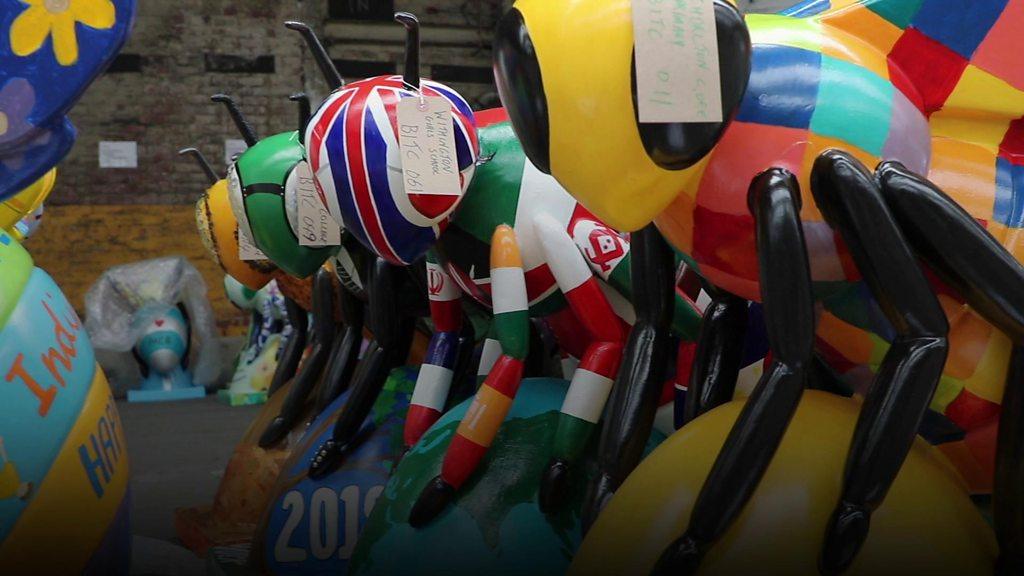'Thousands of bees filled our garden'
- Published
Allow Facebook content?
This article contains content provided by Facebook. We ask for your permission before anything is loaded, as they may be using cookies and other technologies. You may want to read Meta’s Facebook cookie policy, external and privacy policy, external before accepting. To view this content choose ‘accept and continue’.
A couple have described the "educational if scary" moment thousands of bees filled their garden early on Saturday morning.
Brian and Kathryn Yates from Liverpool told the BBC they are feeling fine but shocked after the incident.
Beekeeper Dave Woods, who arrived to help the couple, explained that the insects were looking for a new home.
"During a heatwave, bees multiply more and often outgrow their hives", Mr Woods said.
'Something out of a horror movie'
Mr and Mrs Yates were hanging washing out to dry in their garden at around 09:00 BST when they "heard a noise like a machine".
"I thought if it were insects it would be like something out of a horror movie," said Mr Yates.
"I looked up and to my horror there was a large swirling black cloud about twenty feet off the ground in the corner of the garden moving towards me."
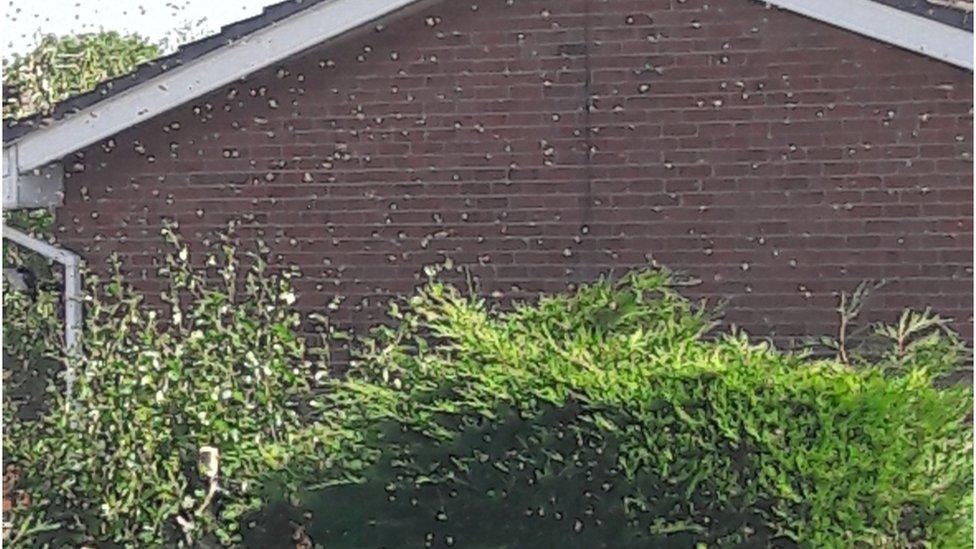
"My wife and I watched as small dark insects filled our garden," said Mr Yates
Mr Yates said that, for around an hour, thousands of bees filled his garden, forcing his cat into hiding.
"A neighbour told me that near our road lived a man who had a hive and that the bees had probably come from there," Mr Yates added.
The hive owner was on holiday, the neighbour said, but that his son-in law - who was also a beekeeper - was on his way.
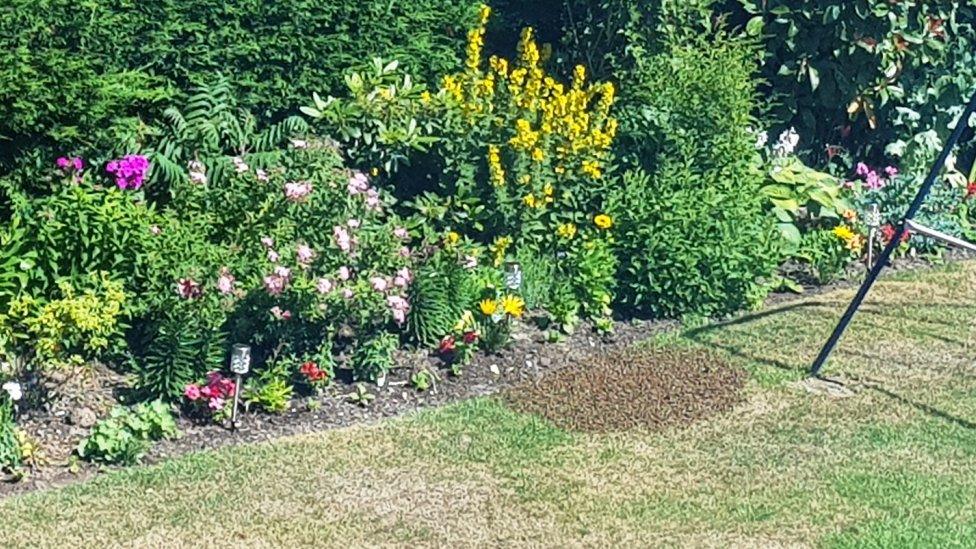
The swarm initially gathered on the couple's lawn
When Mr Yates checked his garden later that day the insects had begun to settle - but, shortly before the beekeeper arrived, a group of them took off, and rose to the top of some conifer trees before swarming again.
The beekeeper put a box in an adjacent garden and shook a clump of bees clinging to a conifer branch into the hive.
Mr Yates said: "This must have included the queen bee because the other bees then began to move into the hive.
"We are very happy they have been contained and have found a new home."
Mr Yates added that he had planned to use his hose on the insects, but was told that was the "worst thing" he could have done.

Beekeeper Dave Woods came to collect the insects
"In such hot weather, and with high pollen levels, hives produce more and more bees," said Mr Woods.
"The hives become too small. So they leave to find a new hive. They fill up with honey before they move.
"They leave behind a new queen bee in their old hive. This new queen has been laid by the old queen."
Mr Woods added it was more difficult than usual to find the queen because she only had a small cluster around her due to the hot weather.
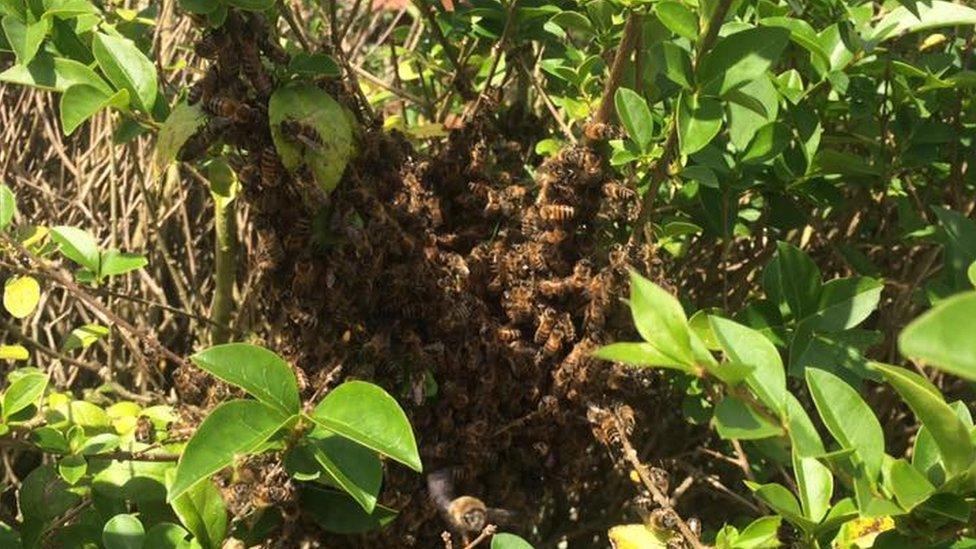
Bees clustering around a queen bee to keep her warm
"She needs to maintain a body heat of 32C (90F). And she was easily doing that without many bees around her" said Mr Woods, who shook the bees - including the queen - into a box.
He continued: "I think about half the bees followed her into the box."
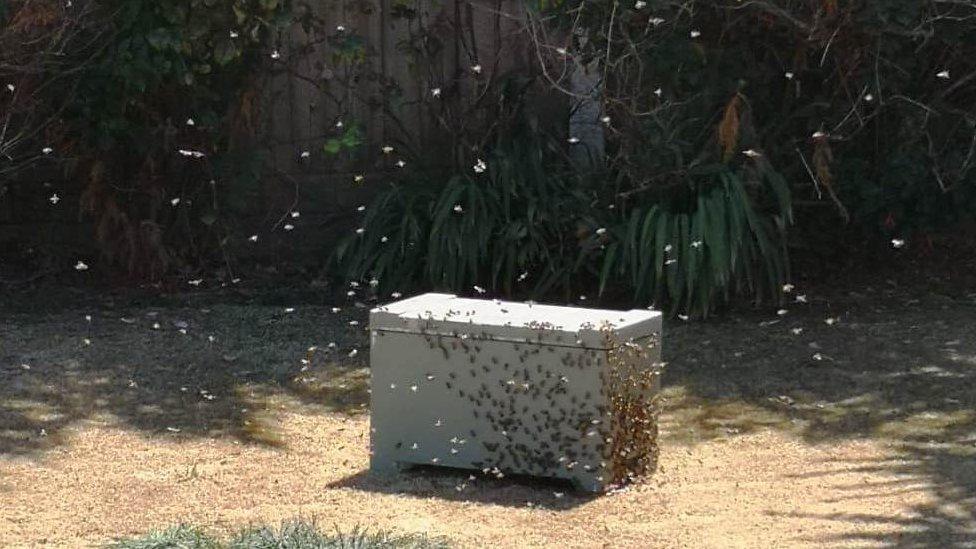
The insects smelled pheromones from the queen and followed her into the box
Related topics
- Published26 June 2018
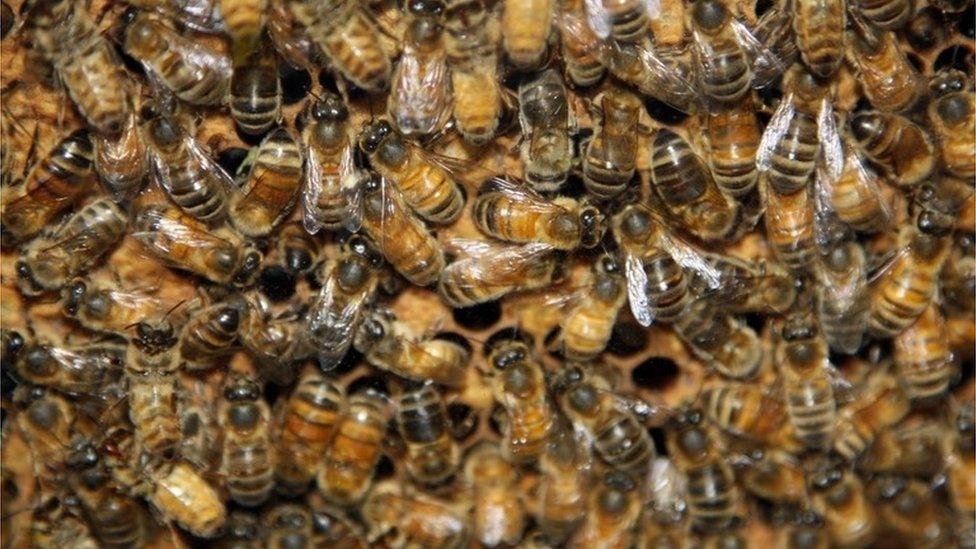
- Published25 June 2018
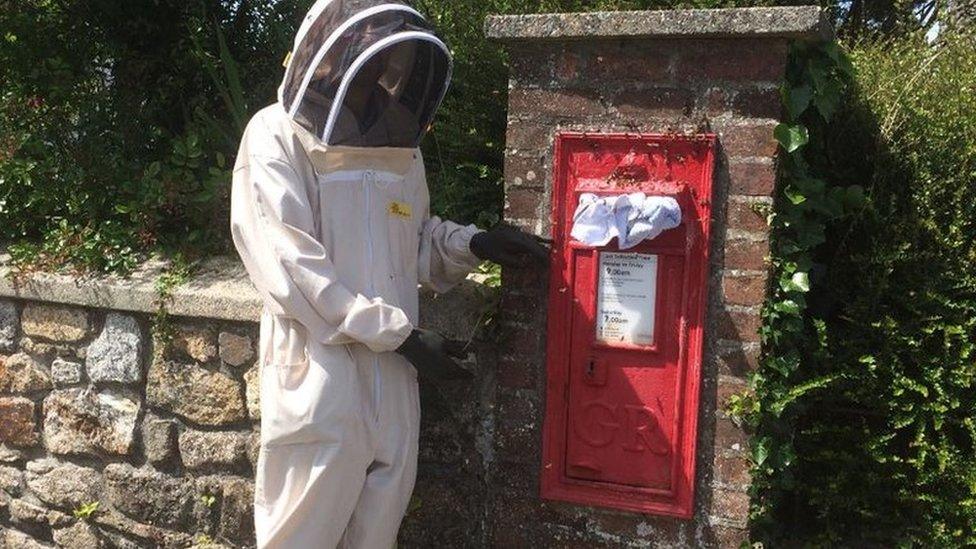
- Published16 June 2018
